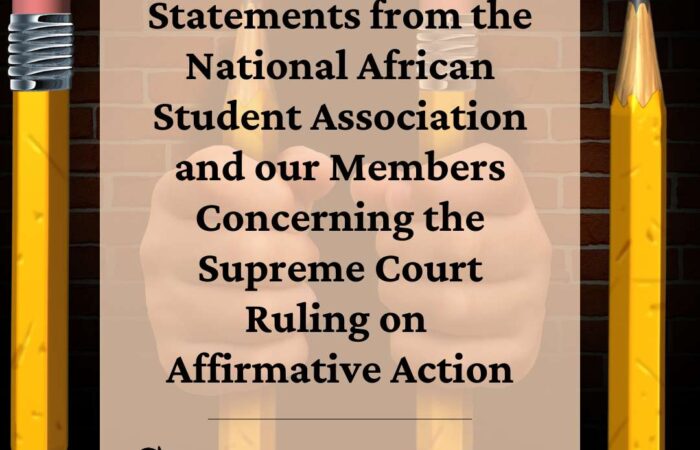By National African Student Association, Inc.

IF THERE IS AN EMERGENCY IN YOUR HOME COUNTRY, your family or a government official may wish to reach out directly to you. If your family or government official has your contact information, then the procedure is simple. Your campus’ international office can also serve as the point of contact since the staff will have trained individuals or groups that can be activated to assist you. Contact details for international student offices usually can be found on an institution’s website or a primary university telephone number can be redirected to the international student services office.
Source: Education USA
IF THE EMERGENCY OCCURS IN THE UNITED STATES, campus or local authorities will notify the institution’s international student office and that office will then spring into action. As a best practice, most offices have emergency contact details on file for each student, as well as waiver forms that allow the release of medical and other personal information to specific individuals. U.S. universities, hospitals, and other legal entities are governed by privacy laws that restrict the free release of student information unless you allow access through signed pre-authorization. If you are, for any reason, arrested or imprisoned on a criminal charge, U.S. universities will become involved in the process of notifying your emergency contacts and possibly your embassy, depending on the seriousness of the arrest.
Source: Education USA
MAINTAIN YOUR F AND M STATUS IN EMERGENCY EVENTS
F-1 and M-1 students share the same primary purpose for coming to the United States, however F-1 students enroll in more traditional academic programs, while M-1 students enroll in vocational programs. Because these two types of programs are different in nature, the types of benefits an international student may be eligible for and how long they may remain in the country depend on whether they are an F-1 or M-1 student. For more information about maintaining your F-1 or M-1 status, please refer to Maintaining Status. It is important that F and M students maintain their nonimmigrant student status, even during emergency events. This means F and M students should continue to take all the necessary actions to remain in status, to the extent possible under the circumstances, and communicate with their designated school official (DSO) about the emergency plans on their campus.
Source: Homeland Security


WHAT TO KEEP SAFE Source: Homeland Security
- Passport and visa.
- Important student forms like the Form I-20, “Certificate of Eligibility for Nonimmigrant Student Status.”
- DSO emergency contact information.
- Contact information for SEVP.
- Social Security card and Form I-766, “Employment Authorization Document,” if applicable.
- Financial records.
- Travel-related documents like boarding passes and plane tickets, if applicable.
PREPARING FOR EMERGENCIES Source: Homeland Security
Campus disruptions can range from natural disasters to manmade events, pandemics, or campus violence. The impact of these events can be far-reaching and highlight the need for all students to have an emergency plan in place. We encourage F and M students to take the following actions to begin making their own emergency preparedness plan while they study in the United Sates:
- Be Prepared, Build a Kit.
- Visit the Federal Emergency Management Agency (FEMA) website.
- Explore Ready.gov’s Campus Ready resources.
- Follow FEMA’s popular accounts on social media.
- Sign up for campus emergency alerts and local information so you can remain informed about what to do while situations unfold and stay updated on the operational status of your school.
IMPORTANT TELEPHONE NUMBERS – For most emergencies, including car accidents, fires, crimes in progress, and other life-threatening situations, call 9-1-1 for local emergency services. Your campus may also have an emergency response line, too. For other important numbers, please check out Emergency #
Title Image Credit to Ling Languages


